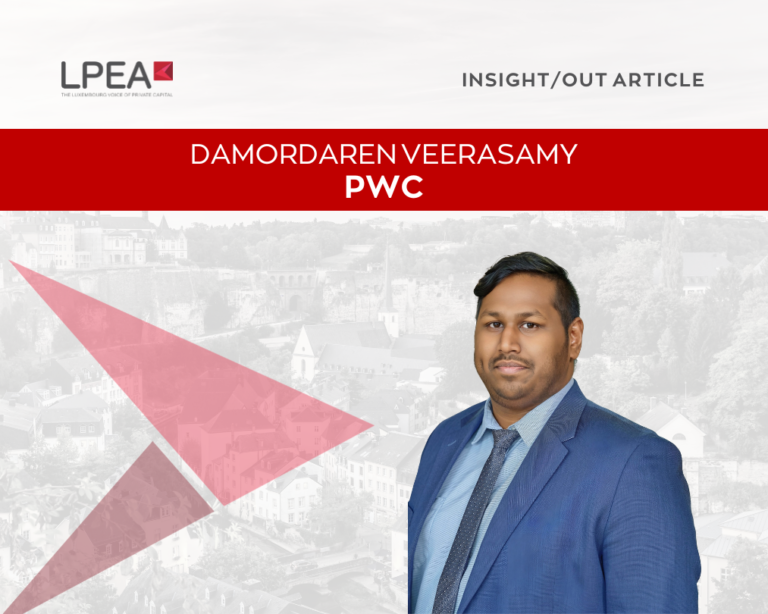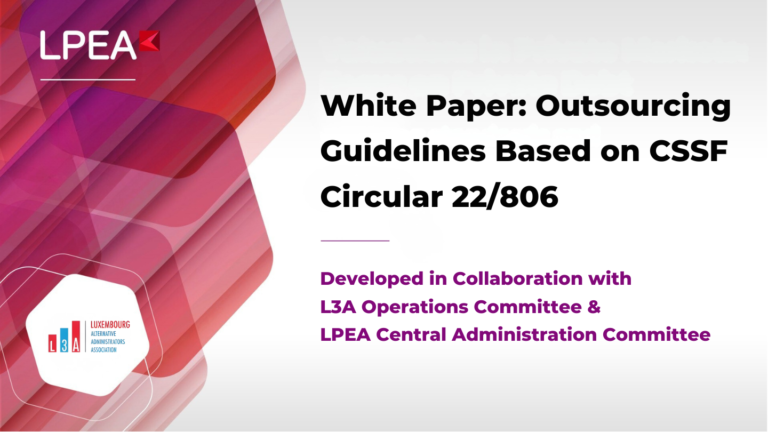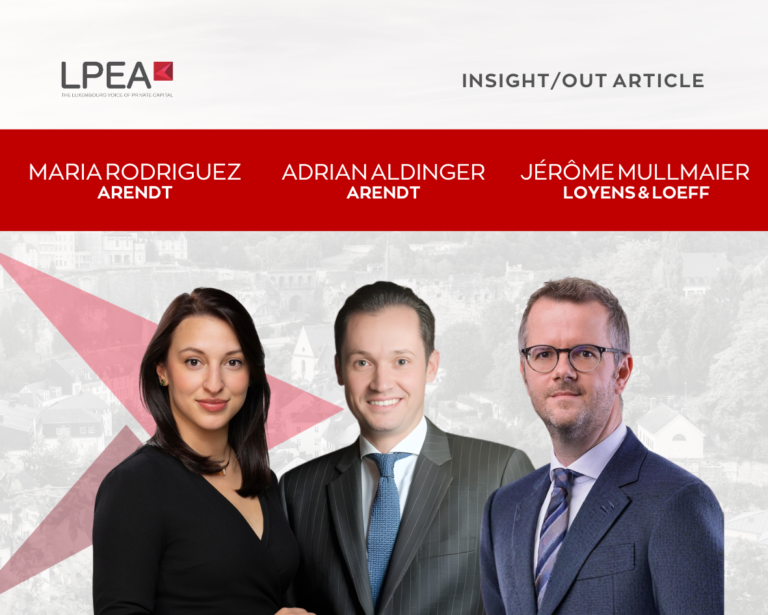Article by Monica Ramos da Fonseca, Conducting Officer and Head of Sales & Marketing at MC Square, as published in Insight/Out magazine #34.
After more than two decades navigating the fund industry, I’ve learned this: if you’re planning to raise capital across borders in 2025, bring your best advisors, an iron will, and a sense of humour. Today, cross-border fundraising is no longer just a compliance exercise, it’s an art form. You’ll need to balance regulatory expectations, marketing strategies, and local investor nuances, all while keeping a straight face on Zoom. Amid growing complexity, there are still places where clarity and experience prevail, and Luxembourg remains one of them.
Why Luxembourg Still Leads the Way
Luxembourg’s role as a key hub for cross-border fundraising didn’t happen by accident. It’s the result of decades of legal innovation, regulatory pragmatism, and a finely tuned ecosystem built for scale. With over 5,000 funds and €5 trillion in assets under management, Luxembourg is not only the largest fund centre in Europe but also the second-largest globally, right behind the U.S.
Its appeal? A combination of robust investor protection, regulatory flexibility, multilingual talent, and a legal framework that supports virtually every structure under the sun UCITS, AIFs, RAIFs, ELTIFs, and more. The country’s central position in the EU allows managers to leverage passporting rights effectively, but it’s also a trusted platform for launching global distribution strategies well beyond Europe. Luxembourg also benefits from a strong public-private dialogue, with regulators who are accessible and industry bodies (like LPEA and ALFI) that push forward-thinking initiatives. The result: a jurisdiction that doesn’t just follow change it often anticipates it.
The Role of Third-Party ManCos: Making Distribution Possible (and Practical)
For fund managers, especially those without a physical presence in Luxembourg, partnering with a licensed third-party management company (ManCo or AIFM) has become a strategic accelerator. These platforms provide substance, governance, and regulatory infrastructure, allowing asset managers to focus on what they do best: managing capital and relationships.
A good ManCo isn’t just a regulatory checkbox, it’s a facilitator of international growth. These firms bring deep operational expertise, compliance oversight, and distribution know-how. They help structure the fund, ensure alignment with local and EU regulations, and often offer access to tried-and-tested distribution networks. As distribution complexity increases, from ESG disclosures to retail accessibility rules, third-party ManCos provide an operational backbone and a critical layer of protection. They know the nuances of marketing rules across Member States, they maintain regulator relationships, and they manage cross-border filings with precision.
In short: for those seeking a flexible, scalable route to market, a third-party ManCo based in Luxembourg is often the missing link between strategy and execution.
The Beautiful Complexity of Fundraising Across Europe
As highlighted in the KPMG–ALFI Private Debt Survey, nearly 50% of Private Debt managers view distribution complexity as a barrier to scaling, especially when venturing beyond the familiar terrain of institutional investors. On paper, the EU offers a harmonised framework. In practice? Try registering a fund in three Member States at once, and you’ll quickly realise it’s more like 27 interpretations of the same opera. From diverging definitions of “pre-marketing” to unique documentation rituals, the dream of “one passport to rule them all” still collides with a reality of forms, filings, and footnotes. Outside the EU, it’s more like taking your show on tour. Markets in the Gulf, Asia, or Latin America are rich with opportunity, but each brings its own tempo, rules, and, let’s call them plot twists. Local presence, expert regulatory translators, and a dose of patience are essential for a successful performance. What’s worth celebrating is the shift in emerging markets, they’re no longer just destinations for capital but are becoming active participants in outbound fund distribution. According to ALFI’s 2025 Cross-Border Distribution Study, countries like Brazil, South Africa, and the UAE are not only attracting European funds but also developing international distribution strategies of their own. This marks a new phase in the globalisation of fundraising and underscores the need for agile, borderless platforms.
A Practical Edge
Whether you’re registering across jurisdictions or tailoring your strategy for specific investor segments, success doesn’t come from the flashiest solution, it comes from what works. Quiet reliability beats hype every time. That means legal frameworks capable of handling nuance, service providers who understand both local realities and international standards, and distribution networks that reach beyond their domestic comfort zones. That’s where real progress happens.
And yes, sometimes I like to think of navigating regulatory complexity the way Carrie Bradshaw might approach Fifth Avenue: confident, curious, and in fabulous heels. Who says fund distribution can’t have a little sparkle?
Retail Distribution: Opportunity with a Side of Complexity
Bringing retail investors into private market strategies is exciting, but let’s be honest, it’s also more demanding. Transparency, suitability, liquidity, these aren’t just buzzwords; they’re non-negotiables. Onboarding must be watertight, and investor communication should be clear, accessible, and legally sound. The industry is adapting, with deeper expertise and more structured support for retail-ready offerings. From transfer agent teams to enhanced risk monitoring, success lies in balancing investor protection with performance. It’s not magic — it’s experience.
Technology as a Growth Enabler
Not long ago, fund distribution meant endless email chains and Excel spreadsheets. Thankfully, those days are fading. Today’s environment requires robust tech from seamless onboarding flows and rebate management to investor portals and real-time dashboards.
In this sea of evolving requirements, even one well-designed dashboard can feel like a superpower. Regtech and fintech are no longer just about ticking compliance boxes; they’re driving speed, intelligence, and scale.
Due Diligence and Distribution Oversight
Every new distribution partner brings another round of documents, KYC checks, and due diligence. Maintaining consistent standards across multiple channels isn’t just tedious, it’s mission-critical. From AML questionnaires to local compliance packs, the administrative burden can grow fast.
The key? Streamlined processes that don’t compromise on depth. Service providers who know what global distributors expect, and can pre-empt bottlenecks, are worth their weight in gold. Distribution oversight isn’t just about signing agreements; it’s about tracking, maintaining, and aligning them with meaningful KPIs. And let’s be honest, the less time spent on red tape, the more time we can spend choosing the right heels for the next client meeting.
The Bigger Picture
At its core, fund distribution isn’t just about regulation, it’s about trust, adaptability, and building bridges across geographies and cultures. In a world where access is both global and granular, distribution professionals must manage a wide spectrum of expectations with precision and purpose.
It’s not just about the jurisdiction. It’s about the people, the process, and the platform you choose to work with.
Cross-border distribution may never be “easy,” but it doesn’t have to be overwhelming. With the right partners, robust structures, and a clear strategic focus, it becomes what it should be: an engine for scale. The goal? Move with precision, communicate with purpose, and grow with integrity. And if you’re navigating all this in 2025, just know: you are not alone. We’re all in one client, one filing, one success at a time. The best is yet to come.




